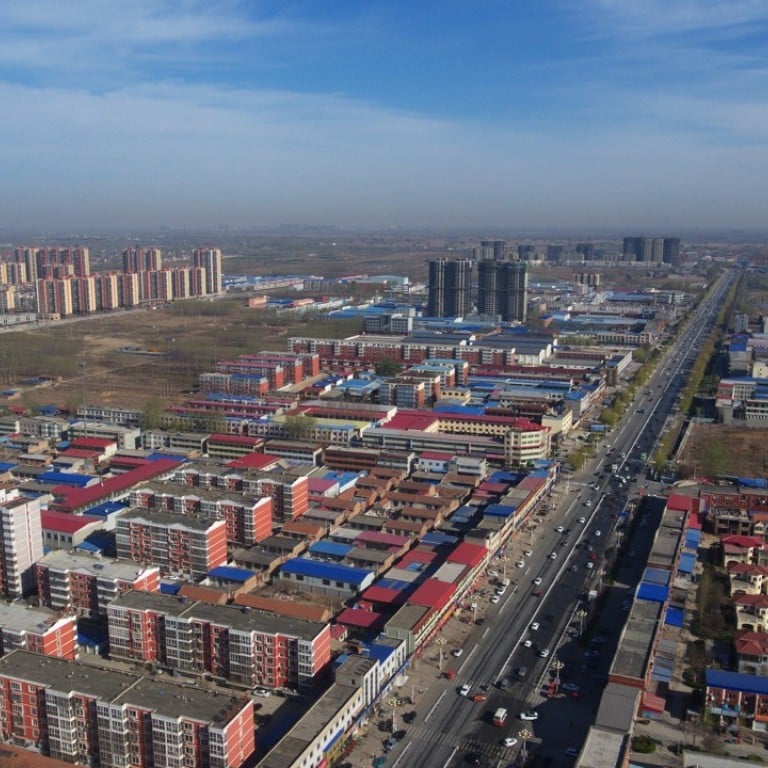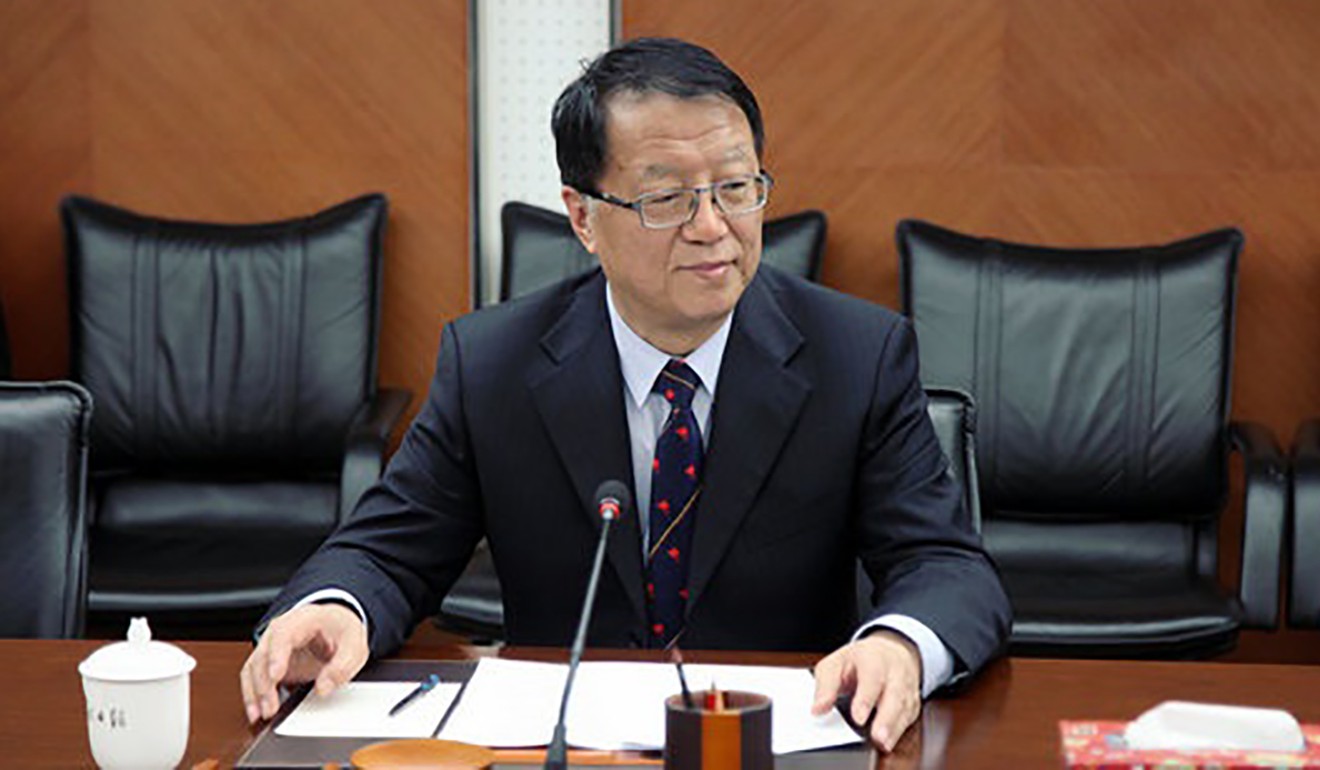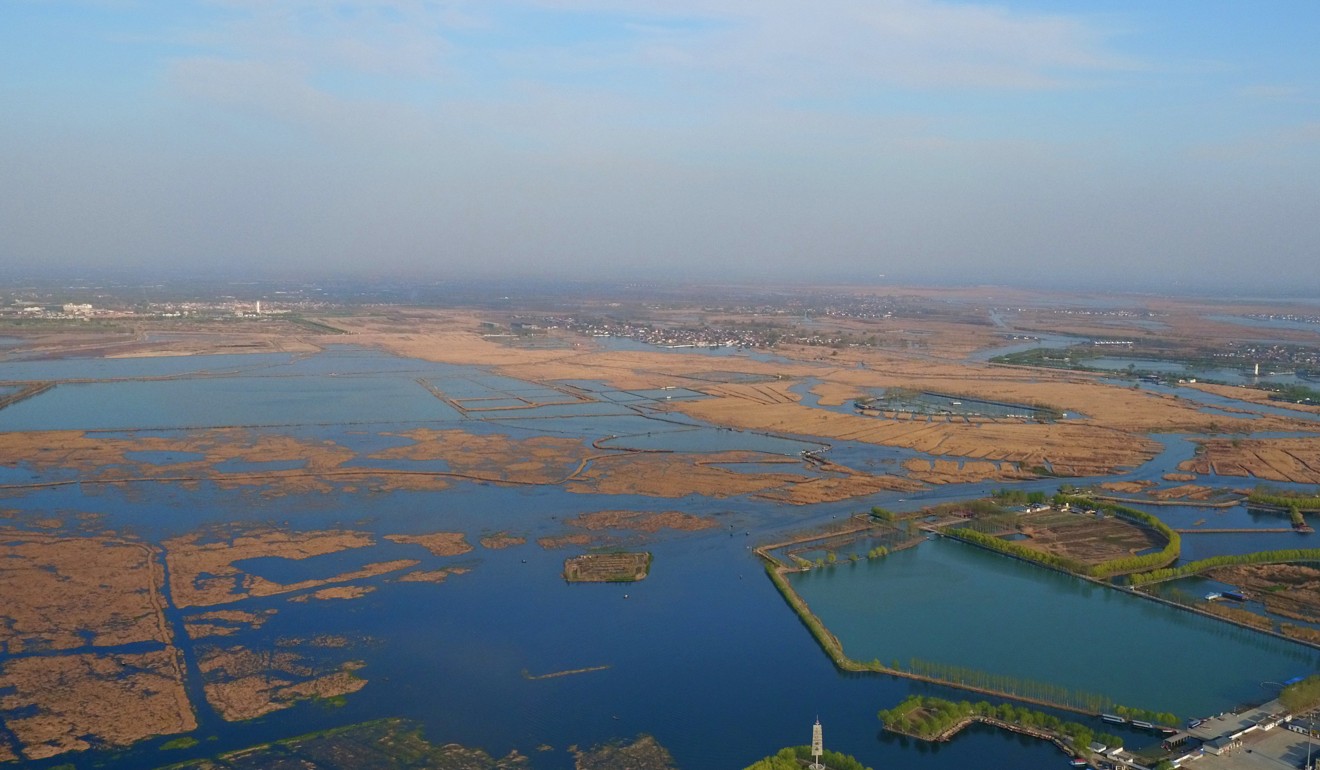
Xi Jinping’s dream city ‘won’t succeed without market reforms’
Urban development expert warns that Xiongan will never be transformed into a hi-tech utopia if it is too reliant on state control
Chinese President Xi Jinping’s ambition to build a dream city in the country’s industrial heartland is unlikely to come true without more aggressive market-oriented reforms, a researcher affiliated with China’s state planner has warned.
The comments by Qiao Runling, an urban development expert at the National Development and Reform Commission, follows the pledge to transform the Xiongan New Area into the next business hub along the lines of Shanghai and Shenzhen.
Speaking at a forum held by financial news outlet Caixin last week, Qiao said the tight government control over the economy in the Beijing-Tianjin-Hebei region, which covers Xiongan, had become a barrier that would prevent Xi’s dream from coming true.
“The conditions there for private sector development are much worse than those in the Yangtze River Delta,” Qiao said. “How can Xiongan start to boom from this kind of soil? There has to be a big question mark.”
The region has for decades been dominated by heavy industries like steel, leading to severe environmental problems.
But the Chinese leadership has decided that under a “thousand-year plan” Xiongan, located at the centre of the region, will have an economy driven by hi-tech and green industries, such as biopharmaceuticals and electronics.
The grand plan has been subjected to little critical scrutiny from Chinese officials or academics since Xi offered his personal approval in April. He said the city would be “a historical legacy left by this generation of Chinese communists”.
Qiao is one of the few who have publicly questioned the feasibility of building a new growth engine in an area with a weak private sector.
Qiao said that in the area around China’s political centre, local economies were still largely directed by higher authorities and top-down policies, a tradition that had stymied private entrepreneurship.
Fewer than 50 of China’s largest private companies were located in the Beijing-Tianjin-Hebei region, compared with more than 100 in Zhejiang, a Yangtze River Delta province known for its myriad small businesses, the researcher said.

Qiao told the forum that in the region “there is a blind worship of leaders, governments, policies and planning”.
“Market-oriented reforms must be relaunched,” he said. “Without it, I’m afraid Xiongan cannot succeed.”
Xi has modelled Xiongan after economic zones in Shanghai and Shenzhen, hoping the new town will help revive a region afflicted by slowing growth, chronic overcapacity and serious pollution.
Like Shenzhen before 1980, Xiongan is a largely rural area. The government also plans to expand its original size 20-fold to match Shenzhen’s 2,000 sq km.
Xi’s personal endorsement has also given the area the same prestige as Shenzhen, which was hand-picked by late paramount leader Deng Xiaoping as a testing ground for the market economy.
However, experts say Xiongan lacks the key factors that transformed Shenzhen from a fishing village into China’s Silicon Valley in less than three decades.
Christopher Balding, an economist at the Peking University HSBC School of Business in Shenzhen, said the southern city benefited from being a coastal city, its proximity to Hong Kong and a bureaucracy that was friendly to entrepreneurs.
“It is an ecosystem that is difficult to replicate,” Balding said. “If you look at the area that surrounds Beijing, other than being connected to the government and a lot of those services, it is difficult to see exactly where Xiongan would benefit.”

For now, Xiongan has weak infrastructure, and little financial and industrial support, although land prices have soared since the president unveiled his plan in April.
But according to the official plan, Xiongan will become a modern, intelligent and low-carbon megacity by 2030.
“It has low population density, low levels of development and big potential of growth,” a Xinhua article said, eulogising Xi’s political wisdom in choosing Xiongan. “A white sheet of paper can have the most beautiful images painted on it.”


